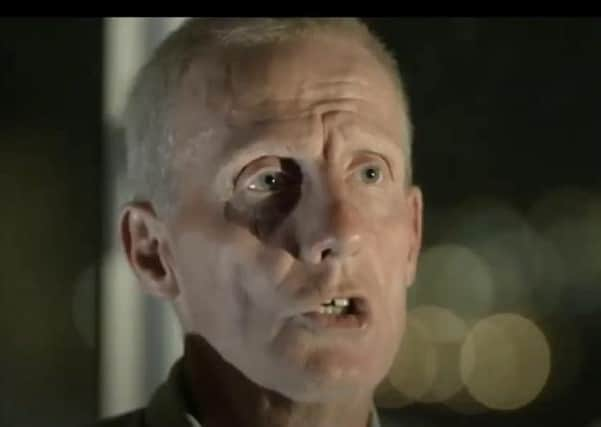Unquiet Graves: ‘Theory, opinion, belief, but no evidence – no hard facts’


The author and security commentator said that apart from the emotive, factual information on the horrors of the killing spree, the film, which was broadcast by RTE on Wednesday night, produced no new factual information that would help convict anyone of involvement.
Dr Matchett, a former Special Branch inspector who wrote ‘Secret Victory: The Intelligence War That Beat The IRA,’ said: “Had RTE wanted to show Unquiet Graves just before an election, I am sure Fine Gael and Fianna Fail would have objected.
Advertisement
Hide AdAdvertisement
Hide Ad“It was history by collusionologists. Theory, opinion, belief, but no evidence. No hard facts – and no balance.”
The film was produced and directed by Sean Murray – son of senior Sinn Fein strategist and former IRA member Sean ‘Spike’ Murray – with Paul O’Connor of the Pat Finucane Centre one of the main contributors.
Another significant contribution came from former RUC officer John Weir who was convicted of murdering Catholic shop owner William Strathearn in Ahoghill in 1977.
The film gives a platform to Weir who – among other unsubstantiated claims – alleges British intelligence personnel encouraged the UVF to carry out mass murder at a Catholic primary school.
Advertisement
Hide AdAdvertisement
Hide AdAlthough the trailer for the film creates an impression that Weir has first-hand knowledge of such a plot, the full screening makes it clear his assertion is based on him having heard reports that UVF leaders in Belfast had a hunch that British Intelligence might have been masterminding such an attack.
The exact sequence of events, as described by Weir, is not recorded on film and is instead paraphrased by Paul O’Connor.
O’Connor states: “He told us there was a plan to attack a primary school, to kill all the children in the school, to kill the teachers. We asked him why it didn’t go ahead and he told us ‘because the UVF leadership in Belfast believed that the plan came from Army headquarter, came from Military Intelligence, and had been planted.’”
Weir also claims that his murderous activities with factions of the Mid Ulster UVF, later dubbed the ‘Glenanne Gang,’ were sanctioned at the highest level.
Advertisement
Hide AdAdvertisement
Hide AdHowever, those claims were investigated by journalist Liam Clarke back in 1999 who also interviewed other terrorist associates of Weir – including convicted killer and RUC constable William McCaughey.
In a Sunday Times article, Clarke said: “Weir, alone of the three members of the group interviewed for this article, seemed to have believed he had outside protection and approval.
“McCaughey said, ‘I knew I had no backing. If I had backing, I would have done far more. I was worried sick about being caught. I knew I would be jailed and I was drinking very heavily through stress’.”
Although Weir was eventually sentenced for the Strathearn murder in 1980, it would be almost 20 years before he would accuse many of his former colleagues of serious criminality.
Advertisement
Hide AdAdvertisement
Hide AdAhead of Wednesday night’s broadcast, two former RUC detectives told the News Letter how the suspected involvement of serving police officers in sectarian murders led to an unprecedented RUC investigation – bringing together the best detectives from across Northern Ireland in total secrecy to identify and prosecute those involved.
The subsequent investigation led to five officers facing serious charges up to and including murder.
“Why didn’t Weir take the opportunity to say all this stuff at Castlereagh because it could have saved his bacon?” one of the ex-officers said.
The former detective sergeant said it was unthinkable that Weir would have remained silent.
Advertisement
Hide AdAdvertisement
Hide Ad“At the very least he would have been able to do some kind of deal [for a lesser sentence]. That was the opportunity for Weir to use whatever intelligence he had in order to ease his own position.”
In a Facebook post on Thursday morning, author and commentator Malachi O’Doherty was also critical of the film.
“There was a contradiction in the message of the programme in that it was said that the RUC did nothing about sectarian murders of Catholics and yet we saw at other places that people were charged and convicted,” he said.
“The claim that the loyalists planned mass murder at a primary school and that this was suggested to them by the army is just that, a claim with no evidence behind it.”
Advertisement
Hide AdAdvertisement
Hide AdMr O’Doherty added: “My fear is that a viewer not clued in to the history here would take this programme’s generalisations and simplifications, and errors for a reliable account of how things were. Thankfully, other sources are available.”
A message from the Editor:
Thank you for reading this story on our website. While I have your attention, I also have an important request to make of you.
Advertisement
Hide AdAdvertisement
Hide AdWith the coronavirus lockdown having a major impact on many of our advertisers - and consequently the revenue we receive - we are more reliant than ever on you taking out a digital subscription.
Subscribe to newsletter.co.uk and enjoy unlimited access to the best Northern Ireland and UK news and information online and on our app. With a digital subscription, you can read more than 5 articles, see fewer ads, enjoy faster load times, and get access to exclusive newsletters and content. Visit https://www.newsletter.co.uk/subscriptions now to sign up.
Our journalism costs money and we rely on advertising, print and digital revenues to help to support them. By supporting us, we are able to support you in providing trusted, fact-checked content for this website.
Alistair Bushe
Editor